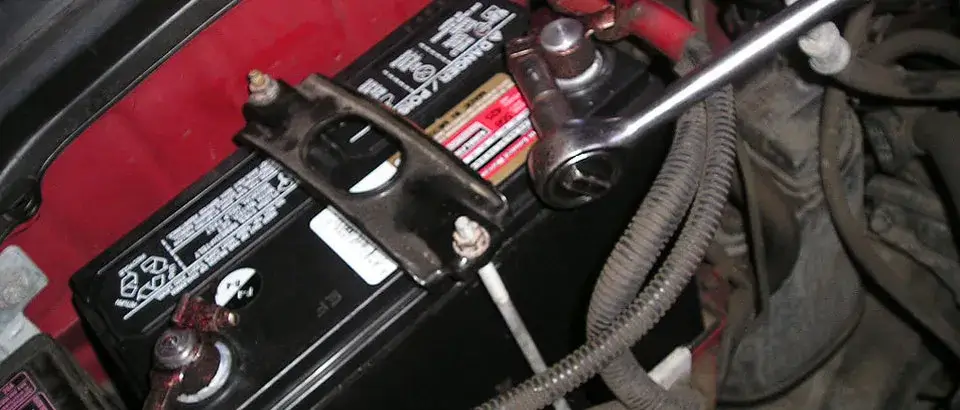Batteries are known to be one of the most essential innovations of all time. They not only have made electricity portable but have also ensured that electricity is accessible to everyone. Amongst all these batteries, car batteries have existed for more than a hundred years. Car batteries have powered millions of cars for decades and continue to do so modestly. Even though a car may rely on gallons to push it for miles; it’s the power generated by a car battery that gets the car going on a road.
Despite having such crucial importance; people tend to neglect car batteries. Frankly, people tend to forget about the car battery and realize its importance only when the car breaks down and it needs to be taken for a car battery replacement service. Most people aren’t even aware of the working of a car battery. A car battery is recognized as the primary source for automotive. It is used for starting them and can be recharged once it runs out of power. A lot of aspects go behind the construction and working of a car battery. Here’s an insight into some exciting facts about the car battery:
1. Water-based batteries:
Car batteries have evolved. Their construction and their way of maintenance have significantly changed over time. For example, until recently most car batteries need to be filled with water occasionally every few months. This water was either deionized, demineralized, or distilled and helped batteries carry out essential functions to produce the energy.
However, sometimes people using such batteries ended up with car battery replacement often. This is because most people made the mistake of using tap water. Tap water is full of minerals and salts. These ingredients ruin the car battery by blocking the coats and pores of the plates installed inside the battery. If a car battery stops working due to lack of water, one must fill it up with bottled water to get back on the road in no time.
2. Safe voltage:
Car batteries are designed to deliver a certain amount of voltage. This amount is usually standardized to a certain value like 12.4 volts. This voltage stays stable most of the time it is installed in a car that is used regularly. However, this voltage is known to drop in some cases. For example, if a battery is stored on a shelf or a car is not driven for too long. Such a voltage can cause critical damage to a car battery, leading car owners to a car battery replacement service.
To ensure that the car battery doesn’t lose charge while idle, one can make use of gadgets like multi or float charger. These chargers keep on pushing a charge from time to time to ensure that the voltage does not die down. Alternatively, one can also prevent voltage loss by storing the car battery in a dry and cold location.
3. Effect of driving habits:
Most car owners are unaware of the fact that car driving habits play an essential role in the health of a car battery. A car that is driven for longer distances has better endurance than a car that is often taken on shorter drives. The lifespan of a car battery is greatly affected by frequent short drives as the engine frequently derives heavy power from the battery.
An alternator is responsible for recharging the car battery. This charging process is slow and happens gradually after begins to move on the road. This makes the car battery suffer due to a lack of charge and charging time. So, whenever a car is started often; it puts an excessive load on the battery to kickstart the engine. This affects the lifespan of a battery, in the long run, forcing a car owner to eventually go for car battery replacement.
4. Passive damage:
A car battery is made up of various reactive elements. These elements define the explosive nature of the battery. Since a battery is responsible for the delivery of power across the car, it is connected to every electrical system installed inside the car. This makes every interconnected system susceptible to potential damages caused by a car battery.
For example, lack of power inside a car can affect the working of the motor and the charging system. These systems tend to draw excessive power from a dying battery to keep functioning and make themselves exposed to electrical damage.
A regular inspection will ensure that no healthy part is affected by a bad car battery. Most car batteries past the three-year mark must be checked at least once a year. A regular car battery replacement service ensures that no other damage occurs due to a bad battery and helps save excessive costs.
5. Effect of seasons:
Car batteries are known to be affected by weather, seasons, and temperatures. They are as sensitive as a living being in these regards. One might have noticed how a person shivers due to extreme cold weather. A similar kind of thing happens to the car battery when it is exposed to extremely cold temperatures. This prevents the battery to function normally and affects how a battery works. Hence, car battery needs to be properly seasoned to combat the effects of cold weather.
Heat, on the other hand, is known to affect the battery more. All the chemicals present inside the car battery are corroded by extremely warm, humid temperatures. Heat causes this corrosion by evaporating all the liquid inside the car battery, leading car owners to visit a car repair shop and opt for car battery replacement. Proper weather protection and regular care assure that the battery is safeguarded from such kinds of effects.

